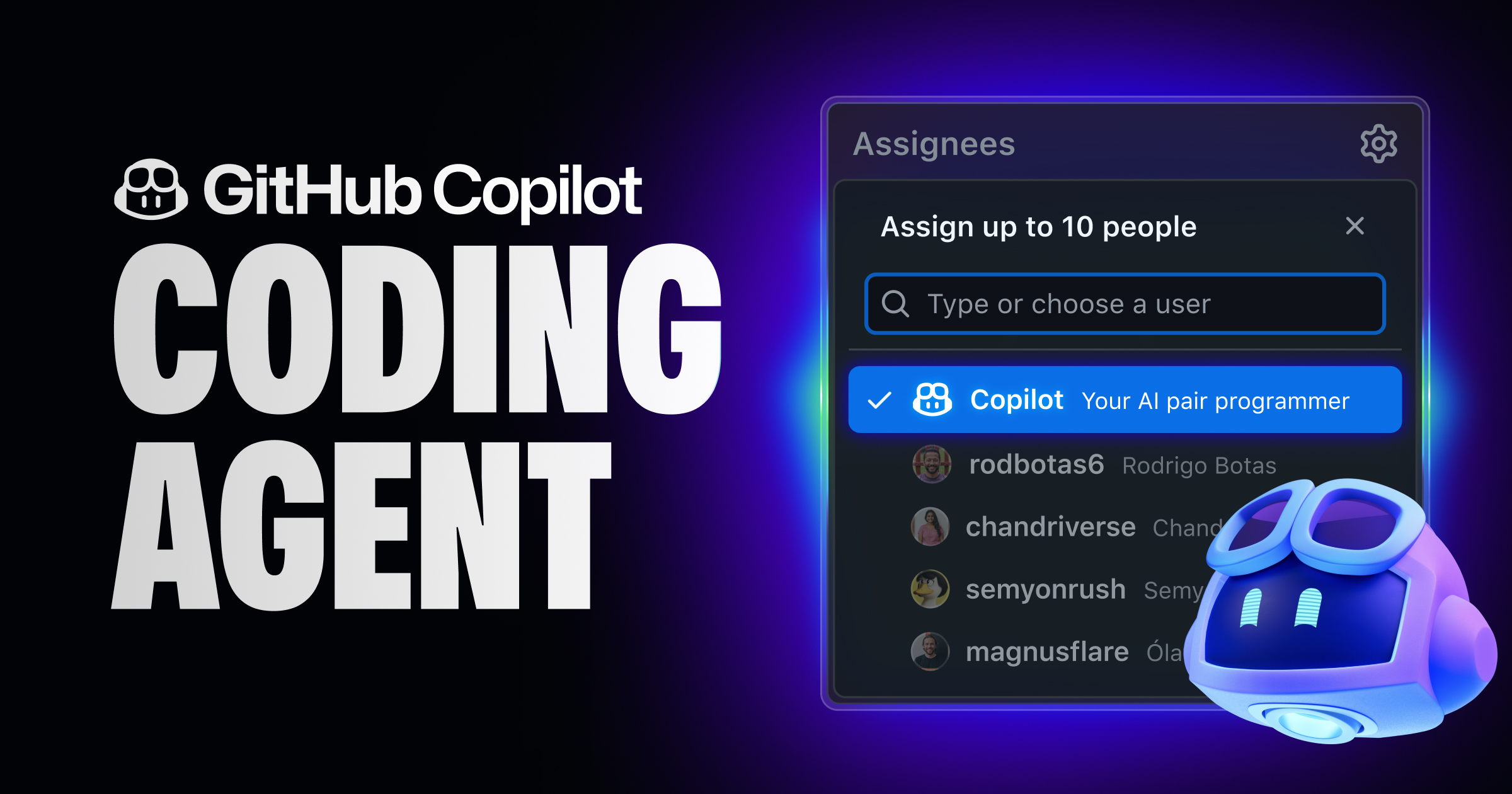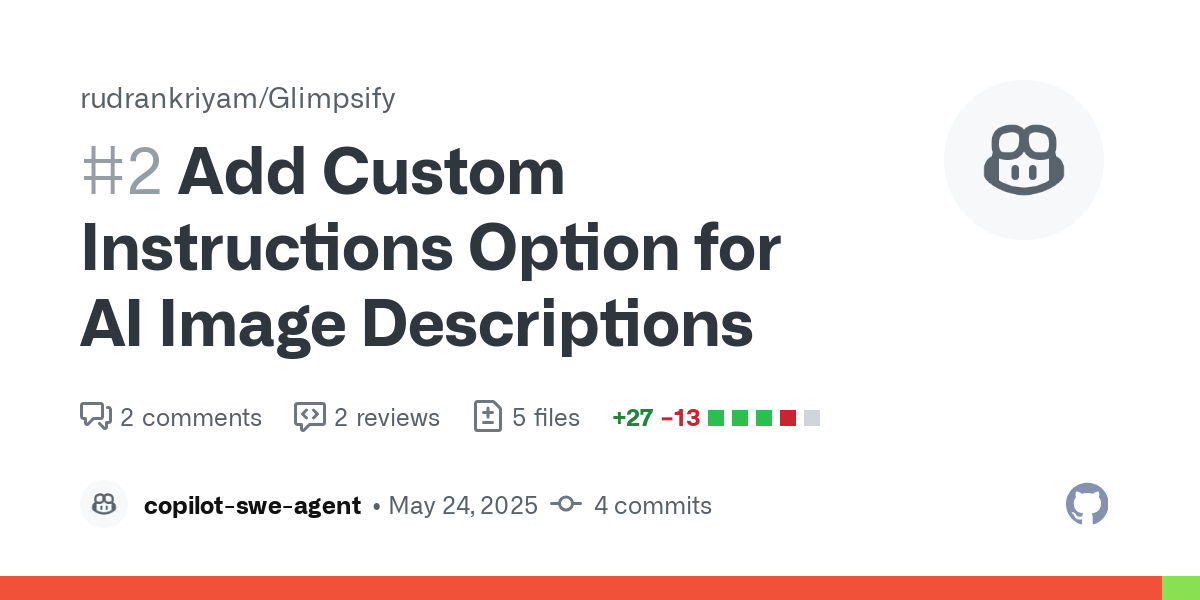Welcome to the twelfth edition of AiOS Dispatch, your go-to newsletter for the latest in AI and iOS development!
What a week it has been! I unintentionally delayed this dispatch as I was working on a new website for "AiOS Dispatch" while simultaneously planning my trip to WWDC 2025. It is still not what I envisioned, but I am excited to announce it in the next dispatch!
As usual, the AI world did not slow down. Between GitHub's new coding agent going live, Google I/O dropping some serious updates and FOMO for us iOS developers, and Claude 4 models being back to claim their crown, there is plenty to go through. Let's explore!
Sponsor: Alex Sidebar
Tired of Xcode? Let Alex use it for you. Build your app automatically with the most powerful iOS development agent.

GitHub Copilot Agent: Project Padawan
GitHub launched Copilot Agent in preview on May 19th, and it is a competitor to OpenAI's Codex and Google's Jules. You can assign GitHub issues to Copilot, and it will handle the entire implementation process through GitHub Actions.

It runs in an Ubuntu container (macOS is not yet supported) and is similar to using it in VS Code with GitHub MCP. It writes the code, tests it, and submits a pull request for your review.
I have merged around 20 pull requests for the new newsletter website, my blog, and a small macOS utility app I worked on. I tested it with simple functionality (you can follow along in the PR below), and it is useful for those repetitive tasks we all hate doing.

My biggest learning has been to assign it isolated tasks with clear requirements to prevent scope creep that ends up in spaghetti code and a useless PR that you have to fix. I got myself the Copilot Pro+ plan, which has unlimited requests until June 4th, and $39 per month felt cheap for the 2000+ requests I have made.
Google I/O 2025: Gemini Gets Serious
Google I/O happened on May 20-21, and they will deliver what Apple (kind of) promised. The Gemini 2.5 updates are worth your attention. The new Deep Think experimental reasoning mode for Gemini 2.5 Pro is essentially Google's answer to OpenAI's o3 series.

Beyond the core AI models, Google announced several developer tools:
Jules, Google's coding agent, is now in public beta. It works in parallel across your entire codebase, handling tasks like dependency updates, testing, and bug fixes while you focus on feature development.
Stitch is Google's new AI-powered UI generation tool that creates designs from natural language prompts. You can iterate conversationally and export to CSS/HTML or Figma. After a few iterations, all the designs are Material, and it was difficult for me to generate an iOS native design. Let me know if you have any success with it!
Gemma 3n is Google's mobile-first AI approach, a model that runs on just 2GB of RAM. They have a project showcasing interesting possibilities on Android, with iOS coming soon.

Sam & Jony's Hardware Play
Sam Altman and Jony Ive announced their collaboration on "io", a new AI hardware venture. Details are still scarce, but the combination of OpenAI's AI capabilities with Ive's design philosophy has everyone speculating.
https://openai.com/sam-and-jony/
For those of us in the Apple ecosystem, this feels significant. Ive's understanding of human-computer interaction combined with OpenAI's frontier AI models could produce something different from the usual "AI gadget" attempts we have seen.
The timing, just before Apple's WWDC and during Google I/O, feels a bit intentional.
Claude 4: Opus and Sonnet Back to Claim Their Crown
Anthropic released their Claude 4 family of models on May 22nd, and they are positioning the new Opus 4 and Sonnet 4 models as the best coding models in the world. The benchmark numbers are impressive, with a 72.5% score on SWE-bench for Opus 4 and 72.7% for Sonnet 4.

Opus 4 can work continuously for several hours, making it ideal for agentic workflows and complex problem-solving. Sonnet 4 is the more balanced option for everyday tasks, bringing its capabilities at a more accessible price point.
I have never used a model as much as I have used Sonnet 4 since its release. Hundreds of requests in VS Code and Cursor, and it is the best coding model I have used so far. I know many folks prefer o3 by OpenAI as the best one, but Sonnet 4 offers the best ROI at its price.
This is it. I can already say Claude 4 Sonnet is my default model for iOS development!!! pic.twitter.com/Vacwja9lMb
— Rudrank Riyam (@rudrankriyam) May 22, 2025
It takes the best of both Claude 3.7 Sonnet and Gemini 2.5 Pro, has a great understanding of context, and is trained to be an autonomous agent. I am using it for everything from writing code to debugging and even writing.
Fun fact: The first draft of this newsletter was written with Sonnet 4!
WWDC 2025: AI Convergence
With WWDC 2025 set for June 9-13, we are less than two weeks away from Apple's reveal. The rumors around Apple Intelligence and AI integration are slowly building, with hints of an updated Calendar app and AI health coach integration.
There are rumors about Xcode 17 being powered by Anthropic's models, and with the release of Sonnet 4, I am particularly interested in covering it, sweating in Apple Park to watch the pre-recorded keynote.
Moving Forward
We are past the novelty phase.
These AI tools are becoming productivity multipliers, but only if you invest the time to understand their strengths and limitations while keeping pessimism aside.






